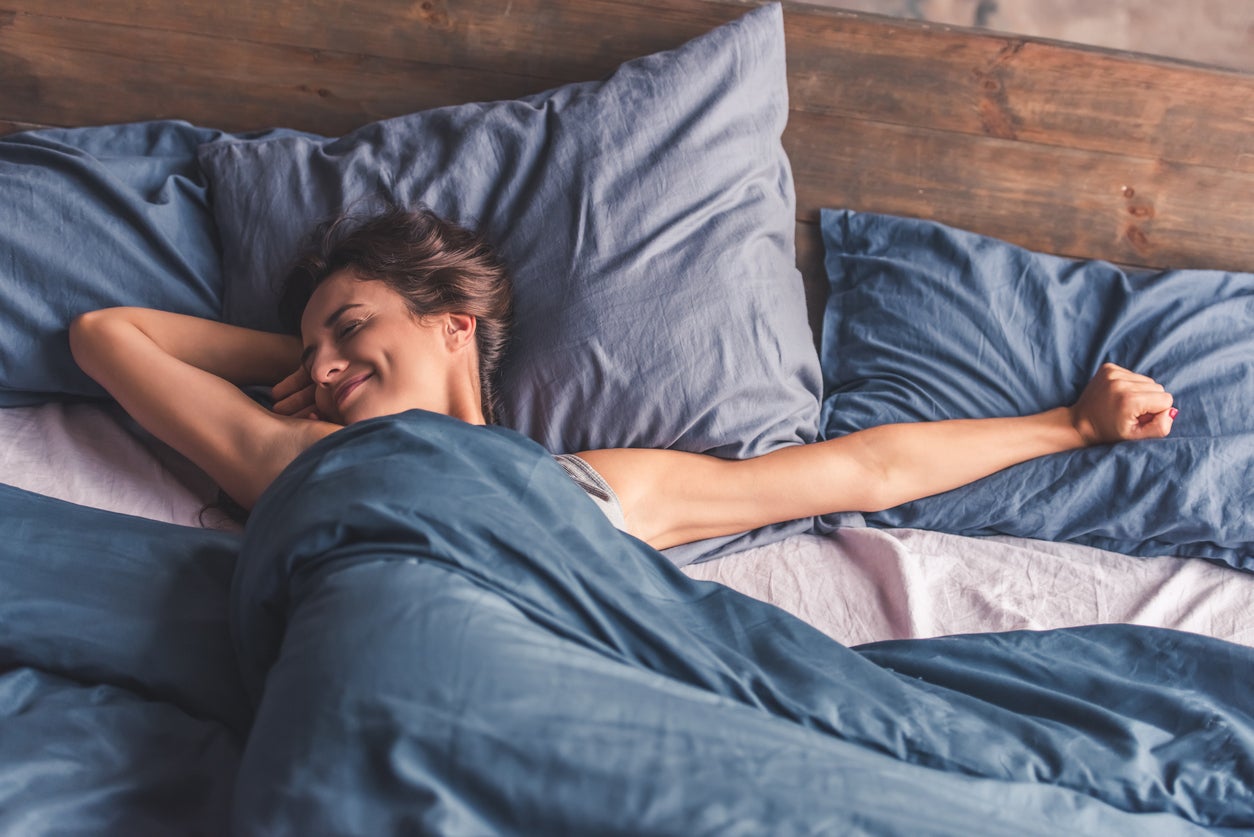Catching up on sleep at weekends can reduce risk of premature death, study claims
The NHS recommends that adults have between six and nine hours of sleep a night

While the majority of people would be able to attest that a good night’s sleep is imperative for a healthy wellbeing, many wind up depriving themselves of rest as they go about their busy regimes.
Not having a sufficient amount of sleep obviously isn’t ideal, as it’s been linked to having a higher risk of developing conditions such as cancer, diabetes and heart disease.
However, according to a recent study, enjoying some much-needed shut-eye over the weekend could have the potential to counteract the detrimental effects of sleep deprivation during the week.
Researchers have carried out a study to determine how lack of sleep during the week and weekend can correspond with an individual’s mortality rate.
Torbjörn Åkerstedt, professor at the Stress Research Institute at Stockholm University, led the study, in which his team assessed data gathered from a cohort of 43,880 participants over the course of 13 years.
The information regarding the individuals’ health and sleeping habits was collected during a lifestyle and medical survey in Sweden that had been carried out in 1997.
Their findings stated that those under the age of 65 who had five hours sleep or less at the weekends had a 52 per cent higher mortality rate than those who had six or seven hours sleep.
However, those of the same age group who slept for a short amount of time during the week and a longer amount of time over the weekend were recorded as having the same mortality rate as those who consistently hit the hay for six or seven hours a night.
The researchers also came to the surprising conclusion that regularly having more than eight hours a sleep a night could also be connected with a higher mortality rate.
The team pointed out that they only assessed individuals aged 65 or under, not bearing the sleeping habits and mortality rates of those older in mind.
Other lifestyle factors, such as whether the participants smoked, drank alcohol, consumed coffee and were physically active, were also taken into account during the study.
The conclusion of the study was slightly indefinite, stating: “Possibly, long weekend sleep may compensate for short weekday sleep.”
In March, a study commissioned by Healthspan discovered that the average Briton spends more than seven and a half years feeling tired.
Monday was found to be the day of the week when people feel the least energetic, with Wednesday coming in second.
Join our commenting forum
Join thought-provoking conversations, follow other Independent readers and see their replies
Comments
Bookmark popover
Removed from bookmarks